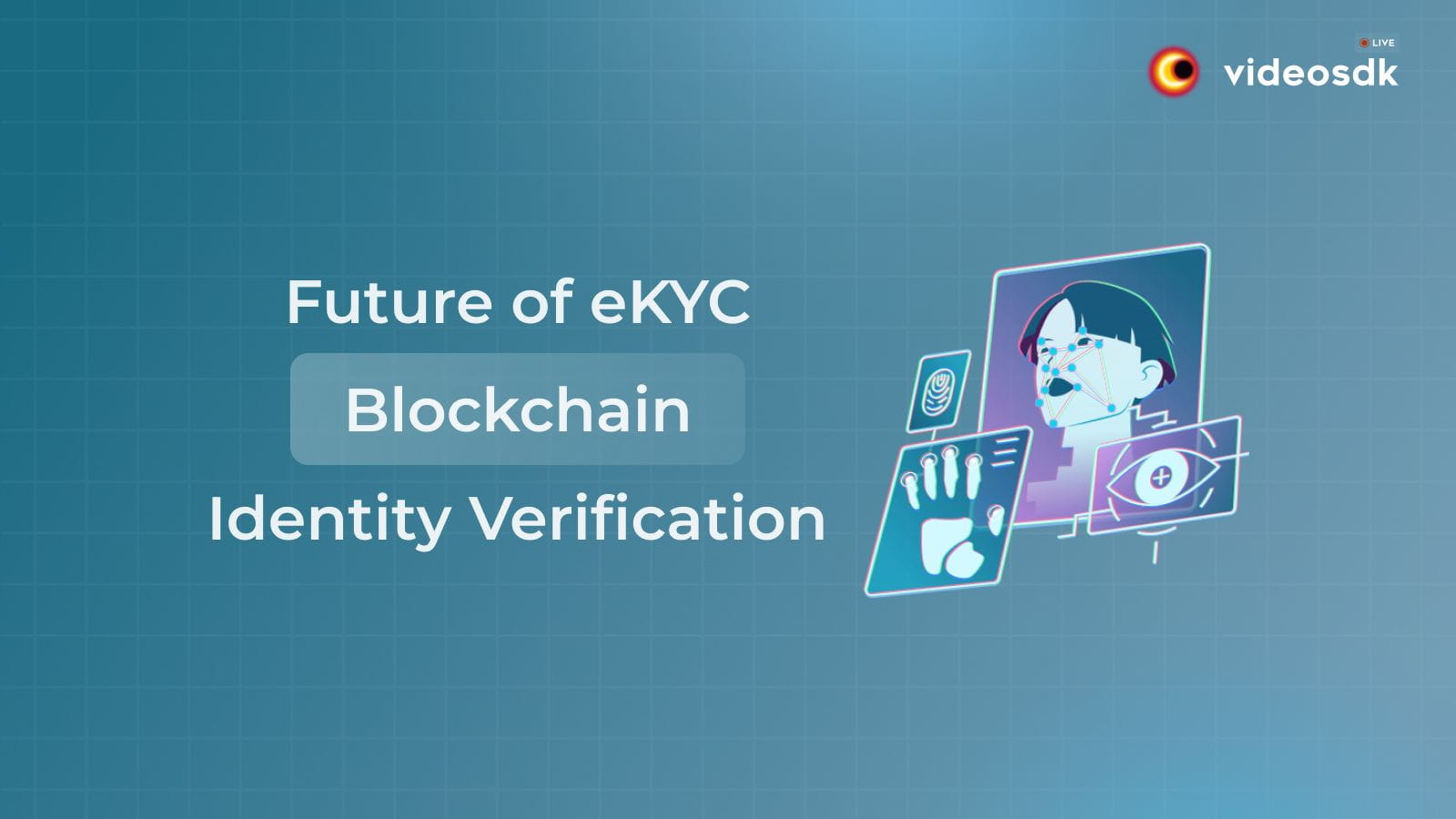In India, whenever you go to do KYC you notice that you have to go for, a face-to-face procedure. This is good when trust is involved, but what if you are not able to travel to that place, or you are at your workplace and didn’t mark the spot for some reason? This is not a single person’s problem.
This is the problem for every customer who wants to do KYC. KYC is mandatory everywhere in the world because it proves that you are the identifier and related things that are attached to you digitally. It will become more important when you are involved in a financial or health-related situation.
The KYC process, where you have to go on an in-person visit to a specific place, is called offline KYC, physical KYC, or face-to-face KYC, and it uses a biometric system. You name it what you want, but the main point is that it has some limitations. It creates problems like data breaches and cyberattacks, posing a significant risk to authorizers and customers.
Traditional KYC methods are static, storing your susceptible customer data in a centralized database. The dependence on centralized databases also leads to inefficiencies and delays, which can frustrate customers and increase business operational costs.
Because of these problems, the concept of the Electronic Knows Your Customer (eKYC) and Video KYC has emerged as a solution to streamline the identity verification process while enhancing security and compliance. In this article, we are only talking about eKYC and its association with blockchain technology that verifies identities, protects sensitive data, and ensures compliance with regulatory standards.
What is eKYC?
eKYC is a digital process of verifying the identity of customers to comply with regulatory requirements, whose main role is preventing fraud, money laundering, and other illegal activities. The eKYC method is faster than manual verification and involves digitizing customer documents and using digital channels to validate identities.
The importance of eKYC not only reduces the time and costs associated with customer onboarding but also enhances the overall customer experience. By using it, organizations can ensure regulatory compliance while minimizing the risk of identity fraud.
How Blockchain Enhances eKYC?
Source: Reimagining KYC Using Blockchain Technology
Blockchain technology’s decentralized, unchangeable, and transparent approach offers a powerful solution to the challenges of traditional eKYC. By decentralizing data storage, blockchain reduces the risk of data breaches and ensures that customer information is securely encrypted and accessible only to authorized parties. Each transaction or update is recorded in a block, which is then added to a chain of previous transactions, making it nearly impossible to change data without agreement from the network.
Blockchain's transparent nature also facilitates better compliance with regulatory standards. Smart contracts (self-executing contracts with the phrases directly written into code) can automate compliance checks, ensuring that only verified and compliant identities are allowed to proceed through the onboarding process. This automation not only enhances security but also reduces the time and cost associated with manual compliance checks.
Several industries are already exploring the integration of the blockchain into their eKYC processes. For example, banks are using blockchain to create secure and efficient digital identities for their customers, which can be reused across multiple services without the need to repeat the KYC process. Digital wallets and fintech companies are also leveraging blockchain to offer faster and more secure onboarding experiences for their users using eKYC.
Future Trends and Innovations in eKYC
Decentralized Identity Solutions
One of the most promising trends in eKYC is the rise of decentralized identity solutions, where individuals control their own digital identities powered by the blockchain. It allows users to store their identity information securely on their devices and share it with service providers only when necessary. This approach reduces the dependency on centralized databases and gives users greater control over their personal information.
AI and Biometrics in Blockchain eKYC
The integration of AI and biometrics into blockchain-based eKYC processes is set to further enhance identity verification. AI can analyze patterns and detect anomalies in real-time, improving the accuracy of verification processes.
Biometrics, such as facial recognition and fingerprint scanning, add a layer of security, ensuring that only the rightful owner of the identity can access services. Together, AI, biometrics, and blockchain initiate a powerful trio that can transform the future of eKYC.
Moreover, as regulatory requirements become more stringent, businesses will need to adapt their eKYC processes to ensure compliance. This may involve the adoption of more sophisticated verification methods and the implementation of real-time monitoring systems.
Looking ahead, the future of eKYC is likely to be characterized by greater collaboration between businesses, regulatory bodies, and technology providers. By working together, these stakeholders can create a more secure and efficient identity verification ecosystem that benefits everyone involved.
Conclusion
As we look towards the future, the integration of AI, biometrics, and decentralized identity solutions will continue to push the boundaries of what's possible in eKYC, making identity verification not only more secure but also more user-centric.
Blockchain technology holds the potential to address many of the inherent challenges in traditional eKYC processes. By providing a decentralized, secure, and efficient way to manage identity verification, blockchain can enhance user experience, reduce operational costs, and improve compliance.
